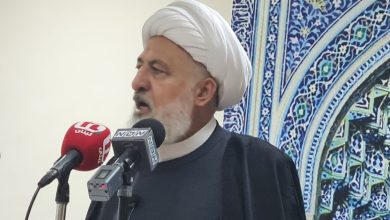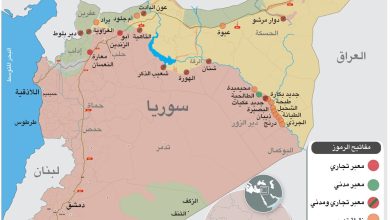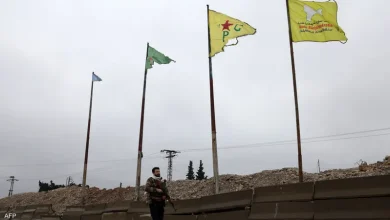قالت الصحف: هكذا يشكل ماكرون حكومة لبنان الأولى بعد المئوية: الإصلاحات والسلاح أولويتان!

الحوارنيوز – خاص
يوم ماراثوني من الأحداث المتلاحقة المتصلة بتشكيل الحكومة الجديدة وبشكلها وبمضمونها وببيانها الوزاري ،صنعه الرئيس الفرنسي ايمانويل ماكرون ووضع عناوينه العامة وبحث في الكثير من تفاصيل هذه العناوين مع مختلف الأقطاب السياسية الممثلة للنظام السياسي موالاة ومعارضة، بإستثناء بعض الفئات التي ترى في حركة ماكرون تعارضا مع أهدافها لجهة مواصلة الضغط على حزب الله بناء لإشارة أميركية واضحة!
• صحيفة "النهار" عنونت:" حكومة اختصاصيين على وقع مهلة ماكرون" وكتبت تقول:"لم يكن غريباً ان يتميز يوم إحياء الذكرى المئوية الأولى لاعلان لبنان الكبير بطابع استثنائي خالص حتى ولو ألغي الاحتفال المركزي بالذكرى بسبب جائحة كورونا. فكيف وقد أمضى لبنان يوما ماراتونيا غير مسبوق من خلال المحطات المتعاقبة لزيارة الرئيس الفرنسي ايمانويل ماكرون في زيارته الثانية للبنان في اقل من شهر مع كل المواقف الحارة التي اطلقها في مختلف المحطات؟ وكيف وقد تزامن اليوم "المئوي" مع استنهاض قوي حاد للشارع المحتج الذي استعاد زخم التظاهرات والاعتصامات والمواجهات العنيفة في وسط بيروت؟ وكيف أيضا وأيضا وقد تزامنت الذكرى مع الاستعدادات الجارية لانطلاق استحقاق تأليف الحكومة الجديدة مع اجراء الرئيس المكلف مصطفى أديب اليوم استشارات التأليف في عين التينة مع امال متعاظمة بتأليف سريع؟
كل هذه التطورات اللاهثة تلاحقت امس مع الحضور الحيوي للرئيس الفرنسي الذي سجل رقما قياسيا برنامج تحركاته المتعاقبة منذ الصباح وحتى ساعات الليل المتقدمة بحيث امتزجت في اليوم الفرنسي الماراتوني في لبنان الدلالات الرمزية المتصلة باحياء الذكرى المئوية لاعلان لبنان الكبير مع المواقف العملية والسياسية ذات النبرة الضاغطة على نحو تصاعدي للرئيس ماكرون. ويمكن القول استنادا الى الإيحاءات المباشرة للرعاية الفرنسية الضاغطة بقوة غير مسبوقة نحو متابعة دؤوبة للمسارات اللبنانية كما استنادا الى المعلومات المتوافرة عن الأجواء التي تسبق الاستشارات النيابية التي سيجريها اليوم الرئيس المكلف تشكيل الحكومة الجديدة مصطفى أديب ان ثمة اتجاها قويا للغاية يحظى مبدئيا بتغطية سياسية ونيابية واسعة لاستعجال تأليف الحكومة وإعلانها في فترة قصيرة جدا تختلف تماما عن فترات التأليف السابقة ولا تتجاوز الأسابيع الثلاثة وربما اقل بعدما اعلن الرئيس الفرنسي عن التزام الافرقاء مهلة أسبوعين لتشكيل حكومة اختصاصيين ومهنيين. ويقترن هذا الاتجاه أيضا، وهنا الأهم، بتنامي مناخ يقال انه سيتبلور بوضوح في الأيام القليلة المقبلة لتكريس مبدأ تشكيل حكومة مصغرة لا يتجاوز عدد أعضائها الـ12 او الـ14 وان يكون الوزراء من الاختصاصيين غير الحزبيين او المرتبطين بقوى حزبية وسياسية. اما السمة الأخرى التي يتردد ان العمل جار على تظهيرها فهي اسقاط تقاسم الحقائب الوزارية الأساسية كما جرى اتباعه منذ مدة طويلة بحيث لا تبقى أي حقيبة مع أي فريق سياسي بعينه خصوصا اذا جرى التسليم بحكومة اختصاصيين لا وجود لممثلين حزبيين بينهم. ولا تنكر جهات عاملة على تعبيد طريق الرئيس المكلف وتسهيلها باختصار المماحكات التقليدية بان الدفع الكبير والاستثنائي الذي يتولاه الرئيس الفرنسي كقاطرة قوية ودافعاً نحو حل داخلي ترعاه فرنسا بقوة سيكون رافعة حقيقية لاستعجال تأليف الحكومة، والا فان أي عرقلة او تعطيل او تعثر سيثير تساؤلات وشكوكا مقلقة عن أدوار خارجية ربما لا يرضيها الدفع التصاعدي للدور الفرنسي في مساعدة لبنان على تجاوز ازماته وتتهيأ لارسال المؤشرات السلبية حيال عدم ترك هذا الدور يحقق أهدافه في دعم لبنان ومساعدته.
والواقع ان تحرك ماكرون امس راكم مزيدا من الحقائق المتصلة بالدور الذي يتولاه شخصيا ومباشرة في التدقيق في كل ما يتعلق بوجوه الدعم الذي تقدمه فرنسا للبنان سواء على المستوى الإنساني الإغاثي بعد انفجار مرفأ بيروت او على صعيد الدفع نحو الإصلاحات الكفيلة باستقطاب الدعم الدولي للبنان في ازمته المالية والاقتصادية او أخيرا في الجانب السياسي الواسع المتعلق باستعجال الحكومة الجديدة حاليا ومن ثم تكريس اطار الحل الذي يمتد حتى آفاق التغيير السياسي الواسع من خلال انتخابات نيابية مبكرة وكذلك احياء النقاش حول عقد سياسي جديد. هذه الوقائع والاقتراحات بمجملها كانت محور اللقاء السياسي الموسع الذي عقده ماكرون مساء امس في قصر الصنوبر مع البطريرك الماروني الكاردينال مار بشارة بطرس الراعي وأبدى امامه تأييده بلا تحفظ لطرح الحياد خصوصا في مناسبة مئوية لبنان الكبير. ثم طرحت بين ماكرون وممثلي الأحزاب والقوى السياسية الأساسية في لقاءات ثنائية مع كل من الزعماء والأقطاب والمشاركين في اللقاء الذين قدم قسم منهم مذكرات الى ماكرون حول رؤيتهم الى الأوضاع والحلول وسبقت هذه اللقاءات اجتماع ماكرون مع المشاركين جميعا الى طاولة مستديرة. وكان ماكرون استبق هذه اللقاءات بإعلان مواقف متقدمة جديدة من الوضع اللبناني اقترنت بإعلان قصر الاليزيه ان ماكرون سيقوم بزيارة ثالثة للبنان في كانون الأول المقبل. واتخذ هذا التطور دلالات بارزة في ظل اعلان ماكرون نفسه في احاديث ادلى بها من بيروت الى وسائل إعلام فرنسية بانه حدد مهلة ثلاثة اشهر "للتغيير الحقيقي في لبنان واذا لم يحدث تغيير فقد يترتب على ذلك فرض إجراءات عقابية يمكن ان تراوح بين تعليق مساعدات انقاذ مالي وعقوبات على الطبقة الحاكمة ". وقال في مكان آخر انه لا يعرف الرجل الذي تم تكليفه اثر الاستشارات النيابية )الرئيس المكلف مصطفى أديب) وامل ان يتحلى بالكفاءة المطلوبة. وإذ شدد على تشكيل الحكومة الجديدة بسرعة قال انه اقترح آلية متابعة للأشهر القليلة المقبلة "لأننا لن نحرر أموال مؤتمر سيدر طالما لم تنفذ الإصلاحات ولن أتساهل مع هذه الطبقة السياسية .." كما اعلن استعداده لتنظيم مؤتمر دولي جديد للبنان الشهر المقبل بالتعاون مع الأمم المتحدة . كما انه في كلمة القاها خلال الغداء الرسمي الذي أقامه على شرفه رئيس الجمهورية العماد ميشال عون في قصر بعبدا اكد "الاستعداد للمساعدة في تحقيق النهوض المطلوب ضمن خطة واضحة تقوم على الإصلاحات" وأبدى ارتياحه الى ما اعلنه عون عن أهمية قيام الدولة المدنية في لبنان مؤكدا ان فرنسا تدعم كل الخيارات التي يلتقي عليها اللبنانيون .
في قصر الصنوبر
وبدا لافتا ان اللقاء الموسع مع القيادات السياسية في قصر الصنوبر استمر اكثر من ثلاث ساعات وتأخر معه المؤتمر الصحافي لماكرون الى ما بعد العاشرة ليلا والذي اعلن خلاله انه ليس هنا ليأخذ موقفا بين القوى السياسية بل انه متطوع للمساعدة. وابرز أهمية تشكيل حكومة جديدة وقال ان اسم رئيس الحكومة والحكومة هما من مسؤولية السلطات اللبنانية وامل في تشكيل حكومة جديدة في الأيام القليلة المقبلة مع أشخاص كفوئين ومدعومين من كل القوى الأخرى. واعلن انه حصل على التزام الشخصيات التي اجتمع اليها على استجابة طلبه بإلحاح الا يستلزم تشكيل الحكومة اكثر من 15 يوما. وشدد على ان ما هو مهم خريطة الطريق التي أكدها كل الافرقاء والتي وضعها الرئيسان عون وبري ووافق عليها الأطراف. وكشف انه وجه دعوات الى الرؤساء الثلاثة الى مؤتمر الدعم الدولي الذي سينظم في تشرين الأول. وكشف ماكرون ان ثمة اربع أولويات تعتمد الان هي المساعدة الصحية واعلن عن مساعدة لمستشفى الحريري بـ7 ملايين أورو والأولوية الغذائية والتربية والتعليم لتأمين عودة التلامذة الى المدارس والجامعات وتعزيز قدرات مرفأ بيروت وإعادة اعمار المباني المتضررة بانفجار مرفأ بيروت. وقال انه يمنح الثقة الان لكن في نهاية تشرين الأول اذا لم يحققوا ما التزموا به فسيسمي من عرقل. وكشف ان الانتخابات النيابية المبكرة لم تحصل على اتفاق من القوى السياسية. وقال انه "لن يتحدث عن حزب الله بتشكيلته الإرهابية بل بتشكيلته السياسية والبرلمانية وهو قوة موجودة في مجلس النواب".
• صحيفة "الأخبار" كتبت تقول:" في زيارة حافلة بالمواقف والدلالات السياسية، تصرف الرئيس الفرنسي ايمانويل ماكرون كما لو أنه مرشد الجمهورية اللبنانية في مئويتها. تحدث كمن يعطي الإنذار الأخير. إما أن تنفذ الحكومة المقبلة خريطة طريق وضعتها فرنسا من ألفها إلى يائها وإما لا مساعدات والإنهيار آتٍ مع العقوبات. وفي الطريق إلى ذلك، رفض ماكرون البحث في أي "مسألة خلافية"، كسلاح المقاومة أو تغيير النظام
دخلَ لبنان المترنّح في مئويته عهدَ انتداب دولي جديد، تُرجِم بحركة الرئيس الفرنسي إيمانويل ماكرون في زيارته الثانية لبيروت بعدَ انفجار المرفأ، مُحدّداً "ألفباء" الإنقاذ. مُباركاً تكليف رئيس الحكومة مصطفى أديب، رسمَ "مُرشد الجمهورية" الفرنسي خريطة الطريق للمسؤولين: 15 يوماً لتأليف الحكومة، و8 أسابيع لتنفيذ الوعود بعد تأليف الحكومة. إذا وفيتم بالتزاماتكم نفي بالتزاماتنا، وإلا فلن نقدّم شيكاً على بياض ولن نستطيع دعم لبنان.
ومع هذه الزيارة الحافلة بالمواقف، أهمها تأكيد ماكرون الحوار مع كل الأطراف اللبنانيين، تستعدّ البلاد لأيام مفصلية يُفترض أن يتبلوَر معها طرف خيط في ما يتعلّق بموقف واشنطن من المبادرة الفرنسية. فعشية وصول المبعوث الأميركي ديفيد شينكر الى لبنان، تتعاظم المخاوف من أن يكون حاملاً فتيل تفجير عبرَ تكرار شروط بلاده استبعاد حزب الله عن أي حكومة جديدة، على عكس الاقتناع الفرنسي بعدم القدرة على تجاوز الحزب الذي قال ماكرون أمس خلال تفقده المرفأ إنه "جزء من الشعب اللبناني"، علماً بأن مصادر مقرّبة من الفرنسيين تؤكّد عكس ذلك، مشيرة إلى أن "هذه المبادرة هدفها الاستقرار، ولا يعارضها الأميركيون". وتؤكّد هذه المصادر أن "فرنسا ترفض انهيار لبنان، وتريد أن تتواصل مع جميع الأطراف فيه"، مشددة على أن "مبادرتها مدعومة أوروبياً". في المقابل، يعيد آخرون التذكير بحقيقة أن لبنان هو آخر مركز نفوذ لفرنسا في المنطقة، وتعتبره موقعاً استراتيجياً في ظل ما تواجهه مع تركيا في شرق المتوسط، إضافة إلى ما تحمله مبادرة ماكرون من مكاسب للجانب الفرنسي في مشاريع الكهرباء والمرفأ والاتصالات والقطاع المصرفي، فضلاً عن مكاسب سياسية عديدة، منها أن تكون باريس المفاوض الأول بين الغرب وحزب الله.
في قصر الصنوبر أمس، ختم ماكرون يومه اللبناني الحافل. التقى بممثلي ثماني قوى سياسية (تيار المستقبل وحركة أمل وحزب الله والتيار الوطني الحر والحزب "الاشتراكي" وتيار المردة والقوات والكتائب)، ليناقش الورقة التي وزعتها عليهم السفارة الفرنسية، وتضمنت اقتراح مسودة بيان وزاري، مع جدول زمني لبنوده (راجع "الورقة الفرنسية"). وأبلغ ماكرون الحاضرين أنه يضع من رصيده السياسي الشخصي في مبادرته التي يرى فيها إنقاذاً للبنان. أغدق على الحاضرين من عواطفه، قائلاً إنه يحب لبنان، ويحب الحاضرين، لكنه حذّر من أن عدم القيام بمبادرات إنقاذية سريعة سيؤدي إلى اتخاذ إجراءات لم يحددها. في مؤتمره الصحافي بعد اللقاء، لوّح بالعقوبات على معرقلي الإصلاح.
في اللقاء كان واضحاً إصرار الرئيس الفرنسي على إبلاغ الحاضرين أنه لا يرغب إقحامه في أمور خلافية، كالاستراتيجية الدفاعية وتغيير النظام والحياد، يصعب أن يتفق اللبنانيون حولها ويختلفون عليها منذ زمن طويل، مشدداً على أن الأولوية للإصلاحات وليس لأمور "تختلفون عليها منذ سنوات. إذا التزمتم بالاصلاحات، ألتزم أمامكم بالحصول على مساعدة المجتمع الدولي لبلدكم".
النائب السابق سامي الجميّل سأل ماكرون: أي إصلاحات قابلة للتنفيذ بوجود قوة مسلحة غير الجيش اللبناني في البلاد؟ فشدّد ماكرون على أن "الأولوية الآن ليست للبحث في السلاح ولا في الانتخابات (المبكرة) ولا في فكرة تغيير النظام. نحن لدينا رأينا من موضوع سلاح حزب الله. لكن الأولوية الآن هي للإصلاحات التي يمكن تنفيذها ضمن المهلة التي لا تحتمل الخوض في هذه الأمور. أريد أن أقوم بما هو مفيد، ولا تقحموني في أمور أخرى، وإلا فإنكم تكونون كمن يأخذ بلاده الى الخراب". وسأل الرئيس الفرنسي الجميّل الذي أصرّ على إجراء انتخابات مبكرة: "لماذا تصرّ على ذلك؟ كم عدد المقاعد الذي سيتغيّر؟ وهل أنا من انتخب حزب الله؟". ثم توجّه ماكرون إلى النائب محمد رعد ممازحاً: "أنا أدافع عنكم فيما أنتم صامتون". وردّ ماكرون على سمير جعجع الذي كرّر أكثر من مرة الحديث عن ضرورة تأليف حكومة مستقلين: "ليس هذا المفيد. المفيد هو الإصلاحات التي إذا طبقتموها أستطيع أن أضمن مساعدة المجتمع الدولي لكم. ولكن لا تقحموني في مواضيعكم الخلافية". ولفت الى أنه "لا يمكن الفصل بين الحكومة والبرلمان والإتيان بحكومة لا تحظى بثقة مختلف القوى السياسية".
النائب محمد رعد أخذ النقاش نحو الورقة الفرنسية، قائلاً: بصرف النظر عن اللغة التي تمت صياغة الورقة فيها، والتي تشي بشيء من الفرض والإملاء، لكن 90 في المئة من الأفكار الواردة فيها نحن متفقون عليها. وما يعنينا أن ما نوافق عليه ويمر عبر القنوات الدستورية، نحن نلتزم به. لكن ما نقول هنا إننا غير موافقين عليه، فلن نوافق عليه خارج هذه القاعة.
عندها سأله ماكرون عن الـ10 في المئة التي لا يوافق عليها الحزب، فردّ رعد: مثلاً، الانتخابات النيابية المبكرة. نحن نرفضها. أضف إلى ذلك أن الاتفاق على القانون الانتخابي الساري حالياً، استهلك سنة ونصف سنة من الوقت. وعلّق سليمان فرنجية على البند نفسه، معلناً معارضته. كذلك لفت رعد إلى ضرورة توضيح مسألة التحقيق المحايد والمستقل في انفجار المرفأ، فردّ ماكرون بأن المشكلة هي في ضعف الثقة بالدولة اللبنانية. لكن المطلوب ضمانات بأن يكون التحقيق محايداً، وان تتم الاستعانة بخبرات دولية.
وتحدّث رعد عن مسألة حكومة الاختصاصيين، لافتاً إلى ان الاختصاصيين ربما يكونون غير مطلعين على الواقع السياسي، ما يعني عدم نجاحهم في عملهم.
جبران باسيل، الذي قدّم لماكرون ورقة وصفها بـ"الخلاصية"، أكد "أننا ناضلنا كثيراً للوصول الى قانون انتخابي من ضمن النظام الطائفي يعكس التمثيل الشعبي الصحيح، ولن نقبل بتغييره إلا من ضمن عملية متكاملة تحت عنوان بناء الدولة المدنية وإنشاء مجلس للشيوخ ولامركزية إدارية موسّعة، ومن ثم إلغاء الطائفية السياسية"، فكرّر ماكرون استبعاد فكرة الانتخابات، ورفضه الدخول في مسائل من نوع تغيير النظام، رغم "أنني بالطبع سأكون سعيداً إذا اتفقتم على ذلك، لكنني لست هنا لأدخل في هذه الأمور". باسيل أكد أيضاً "أننا مع حكومة تضم وزراء تكون كفاءتهم وخبرتهم أكبر من ولائهم السياسي، ولكن لا يمكن الفصل بين مجلس الوزراء ومجلس النواب، ونريد حكومة تحظى بدعم القوى السياسية التي تؤلف مجلس النواب".
وقدّم وليد جنبلاط لماكرون ورقة تتضمّن اقتراحات يصفها بـ"الإصلاحية"، وهو ما قام به أيضاً النائب ابراهيم عازار نيابة عن كتلة الرئيس نبيه بري. أما الرئيس سعد الحريري، فتحدّث عن حالة الانهيار التي دفعته إلى تسمية السفير مصطفى أديب لرئاسة الحكومة، "والإخوان وافقوا. وأنا أتحمّل المسؤولية رغم رفض الكثر، في الداخل والخارج لخياري. لكن البلد ينهار، وكان عليّ أن أتخذ هذه الخطوة بهدف الإنقاذ. لكن إذا لم تحقق هذه التسمية الإصلاحات، فسأسحب دعمي".
• صحيفة "الجمهورية" كتبت:" حدّد الرئيس الفرنسي إيمانويل ماكرون 3 أشهر للتغيير الحقيقي في لبنان، ملوّحاً بالتشدد والعقوبات وحجب المساعدات في حال لم تقدم الحكومة العتيدة على الإصلاحات المطلوبة، وهو يسعى لحكومة غير تقليدية تكون قادرة على مواجهة الأزمة الاستثنائية من خلال تشكيلة تضمّ اختصاصيين وأصحاب خبرات وأسماء سِيَرهم الذاتية ناصعة، وذلك بعيداً عن المحاصصة المعهودة، ولكن هل سيتمكن من ذلك؟
والإجابة طبعاً رهن الأيام المقبلة خصوصاً في ظل الحديث عن تشكيل سريع للحكومة، يشكّل بدوره مطلباً فرنسياً إلى جانب كونه حاجة لبنانية لمواجهة تحديات المرحلة الحالية، وبالتالي فإنّ استشارات التأليف التي ستبدأ اليوم ستُظهر مدى قدرة الرئيس المكلف مصطفى أديب على تأليف حكومة من دون تدخُّل القوى السياسية وتأثيرها على مجريات التأليف، خصوصاً انّ هذه القوى اعتادت على حجز مقاعدها وحقائبها التي حوّلتها حقاً مكتسباً وموروثاً.
ومن الواضح حتى اللحظة انّ الرئيس الفرنسي، الذي كان نجم المشهد السياسي أمس بتنقلاته ولقاءاته ومواقفه، لا يريد لمهمته اللبنانية أن تفشل، ويستخدم الجزرة والعصا في آن معاً، فيُبدي كل تفهّم وتعاون وإيجابية من جهة، ويحذِّر من مغبة التمييع والإصرار على النهج القديم من جهة أخرى، ملوّحاً بسحب يده ومبادرته ووساطته وترك لبنان لمصيره في حال لم تتعاون القوى السياسية على إخراج لبنان من ورطته.
ولا شك انّ لبنان دخل في مرحلة جديدة مع تكليف مصطفى أديب الذي يتوقف عليه اختيار فريق العمل القادر على نقل البلد من مرحلة إلى أخرى، مُتكئاً على الرئيس الفرنسي، الذي أعلن عن زيارة جديدة في كانون الأول المقبل، لتذليل العقبات التي تواجهه، وهذا ما يميِّز حكومته عن حكومة الرئيس حسان دياب الذي اختاره فريق واحد فرضَ عليه شروطه في التأليف والممارسة، فيما يحظى أديب بدعم فرنسي استثنائي وحاضنة سياسية تستطيع مساعدته في تعطيل محاولات وضعه أمام سياسة الأمر الواقع.
ولكن يبقى انّ الأمور تُقاس بنتائجها، والتجربة قياساً على الواقع مريرة جداً، والشياطين تكمن في التفاصيل. ولذلك، يستحسن الامتناع عن التفاؤل الأعمى والتشاؤم المفرط، ومواكبة مسار التأليف الذي يبدأ اليوم مع استشارات التأليف.
وكان ماكرون قد أنهى نهاره اللبناني الطويل بلقاء مع رؤساء الكتل النيابية والاحزاب السياسية في قصر الصنوبر، وأوجز خلال مؤتمر صحافي نتائج محادثاته، فأكد "أننا لن نغضّ الطرف عن ضرورة تقديم الدعم للشعب". وقال: "بحثنا في أجندة الإصلاح، وعلى اللبنانيين والمسؤولين أن يأخذوا عبرة من المأساة التي وقعت في بيروت، وأنا لم آت لأجلب إنذاراً إنما عدت لمساعدة لبنان ومرافقته إلى مستقبله". وأوضح أنّ "القوى السياسية أكدت أنّ تشكيل الحكومة لن يتجاوز 15 يوماً، وتم الالتزام بخريطة طريق تتضمن الإصلاحات في القطاعين الكهربائي والمصرفي والتدقيق الحسابي في مصرف لبنان المركزي ومكافحة التهريب، وحصلنا على مواقفة الجميع، وخريطة الطريق هذه ستحملها الحكومة الجديدة".
وقال: "اجتمعتُ بالرئيس المكلّف، وتبيّن أنه على الصعيد السياسي يتمتع بدعم كبير، وأنّ سيرته الذاتية تُظهر مهنية واعدة". وأوضح أنه "إذا لم تَف السلطات اللبنانية بوعودها فلن يفرج المجتمع الدولي عن المساعدات المالية، ولن نقدم للبنان شيكاً على بياض".
وعن لقائه برئيس كتلة "الوفاء للمقاومة" النائب محمد رعد قال: "تعهّد (رعد) بالإصلاحات وعارض الانتخابات المبكرة، وقلت له بوضوح انّ هناك اختلافاً في الوجود العسكري وهذا لن يكون ضمن الإصلاحات في الأشهر الثلاثة المقبلة، لكن سيأتي في وقت لاحق". وتابع: "لستُ هنا لأملي أي شيء على أيّ فريق، وأقول إنّ الإصلاحات مطلوبة خلال فترة 4 أشهر، والرئيس المكلّف تعهّد بتوزير أشخاص كفوئين ويجب أن نثق بخريطة الطريق، فهناك موعد محدّد في النصف الأول من تشرين الأول، وسأعود في كانون الأول".
ورداً على سؤال، قال ماكرون: "حزب الله" السياسي انتخب من الناس، وأستطيع القول انه يجب تسليم سلاح "حزب الله" وأعود الى بلدي، لكن كيف نخرج من هذا الوضع من دون الاحتكام الى النقاش؟ وقد أثرتُ هذا الموضوع اليوم".





